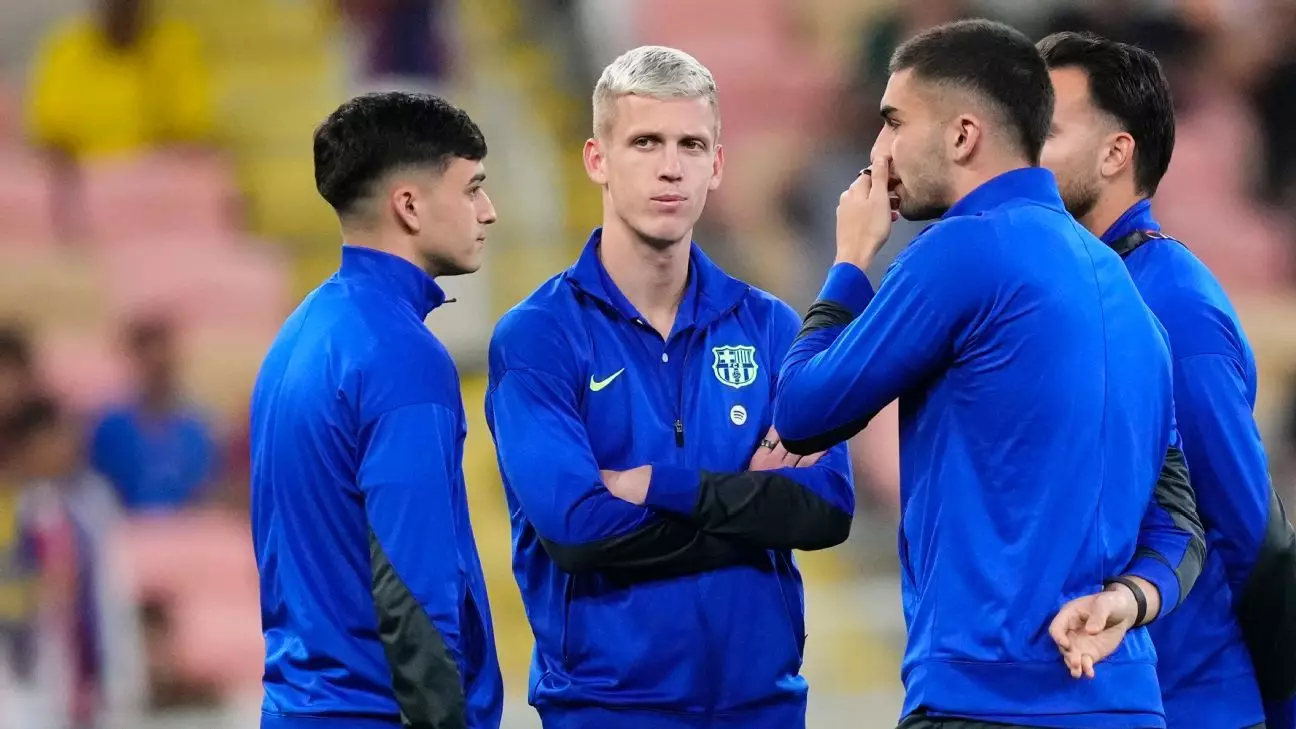The world of football often confronts discrepancies between regulations and the realities faced by clubs, and the recent situation involving FC Barcelona provides a striking example. Following an appeal that enabled Dani Olmo and Pau Víctor to play despite earlier registration denials, Barcelona faces backlash not only from competitors but also from within the sport’s institutional framework. The resulting tension raises vital issues regarding governance, fairness, and the integrity of Spanish football.
Barcelona has found itself navigating treacherous waters due to its financial challenges, which have been well-documented and complex. Underneath the glitz of high-profile signings lies a stark reality: failure to meet LaLiga’s financial fair play regulations resulted in the club’s inability to register new players before a critical deadline. While other clubs adhere to the guidelines governing financial stability, Barcelona’s struggles prompt profound questions about the treatment of various clubs concerning compliance.
The decision by Spain’s Sports Council (CSD) to grant temporary registrations to Olmo and Víctor was seen as a controversial outcome, an intervention perceived by some as overly lenient. Athletic Club’s president, Jon Uriarte, did not hold back, labeling the ruling as “grotesque” and criticizing the CSD’s judgment as politically motivated. Uriarte’s comments highlight a crucial aspect of football governance: the disparity in the interpretation and enforcement of regulations that can favor certain clubs, thereby fueling conspiracy theories about favoritism within Spanish football.
Intense backlash came from not only rival clubs but also voices within the sport who echoed Athletic Club’s concerns. Iñaki Williams, a key player for Athletic, articulated his surprise and disappointment at what he perceives as a double standard in the application of football rules. “It seems that the rules are not the same for everyone,” he stated, thereby opening a discussion on the need for consistency within the sport’s regulatory frameworks.
Barça’s sporting director, Deco, attempted to mitigate the backlash by suggesting that each club’s circumstances are unique and should be the focus of their attention. His remarks illustrated a defensive stance taken by the club amidst external criticism. However, the issue reflects larger systemic challenges within LaLiga regarding transparency and the potential discrepancies in how clubs are treated based on their stature and historical performance.
The fallout from Barcelona’s contentious registration process goes beyond club rivalries—it carries implications for the broader landscape of Spanish football. The frustrations expressed by stakeholders indicate a community struggling with division and confusion about fairness in operational procedures. As Javier Tebas, LaLiga president, pointed out, the mixed messaging and reactions following the CSD ruling could damage the league’s image. A loss of credibility is detrimental not only to the institutions involved but also to the fans, who rely on integrity and fairness in the sport they love.
The situation presents a pressing need for reform and a reassessment of existing protocols to ensure that decisions are made transparently and consistent with the overarching ethos of sport. If clubs can question the validity of regulatory decisions without substantial consequences, the question arises about how this situation might normalize discontent and lead to long-term ramifications for governance in Spanish football.
As Barcelona prepares for its Supercopa final, the saga surrounding Olmo and Víctor’s temporary registration continues to dominate narratives. The goodwill of players and fans alike now hinges on how effectively LaLiga, the RFEF, and the CSD navigate these complex waters. Equitable resolutions are essential not only for the clubs involved but to restore faith across the football community.
While Barcelona seeks to capitalize on its temporary reprieve, the unfolding controversy paints a broader picture of a sport at a crossroads. Without immediate and firm action to reconcile these disparities, the integrity of Spanish football may hang in the balance, affecting clubs at every level. Only time will tell if this incident will catalyze meaningful change or reinforce the existing patterns of inconsistency and dissatisfaction that plague the game.


Leave a Reply